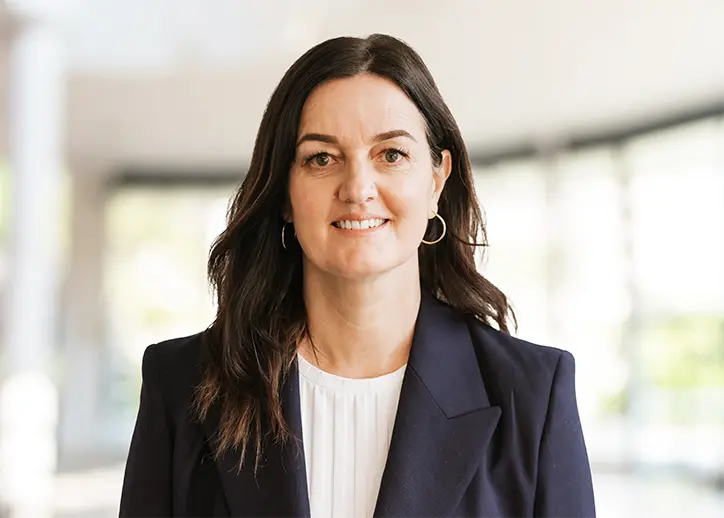Leading the evolution of digital trust: Insights from the ISACA Canberra Chapter Conference 2025
Leading the evolution of digital trust: Insights from the ISACA Canberra Chapter Conference 2025
The Information Systems Audit and Control Association (ISACA) Canberra Chapter Conference 2025 brought together leading voices in technology, governance and risk management to tackle a critical and timely issue: the evolution of governance, security and assurance in a digital world. Among the attendees was Hellen Thomas, Partner, Risk Advisory Services, who joined a panel discussion about leading the evolution of digital trust. The session explored how to support professionals and organisations as they navigate the complex intersection of technology, governance, and human behaviour in an era of rapid innovation and emerging technology.
Read our key takeaways from the panel discussion, highlighting the evolving role of ISACA, the importance of innovation and generational engagement, and the need to embed ethics and accountability into digital trust frameworks.
The enduring role of ISACA
The discussion opened with reflections on ISACA’s longstanding role as a foundational association and resource for professionals in governance, risk, and compliance. ISACA continues to serve as a trusted anchor for practitioners, offering robust frameworks, practical resources, and a global network of like-minded professionals. This institutional support has been instrumental in helping leaders adopt a strategic, helicopter view of risk and apply structured approaches to address complex business challenges.
ISACA’s global reputation is reinforced by its rigorous certifications - such as the Certified Information Systems Auditor (CISA) and Certified Information Security Manager (CISM), which remain benchmarks in the industry. However, it was noted that there is an opportunity to better utilise ISACA and its resources. To unlock its full potential, greater strategic promotion and innovation are needed to elevate offerings like the new ISACA Digital Trust Ecosystem Framework.
Innovation and generational engagement
A recurring theme throughout the conversation was the need for ISACA to embrace innovation and adapt to generational shifts. The panel highlighted how the rapidly evolving digital risk environment is influencing change in the expectations of professionals in the technology and risk domains. From recent graduates to lateral hires interested in cyber security, emerging technology like AI, expectations should be understood and catered to with initiatives that are supported by focused and innovative brand and engagement strategies.
Horizon 2 of the 2023-2030 Australian Cyber Security Strategy was also discussed, including the importance of a balanced integration of cyber technical and human factors to address cyber security and AI related risks. Effective governance, risk management and cyber resilience should be seen as enablers of emerging technologies. The panel called for ISACA to be bolder, more innovative and more risk-embracing, particularly in areas like AI auditing and spoke to the new ISACA AI certifications now available for members.
Digital trust: Beyond technical assurance
The panel also explored ISACA’s newly released Digital Trust Ecosystem Framework, designed to help organisations integrate trust-based strategies into technology and business operations. While the framework is comprehensive, there was a call for increased awareness and promotion to members. To become a true thought leader, ISACA must amplify its promotion of the framework and incorporate human factors and socio-technical dimensions such as ethics, accountability, and transparency.
For many, the market is demanding practical guidance. Chief Information Officers (CIOs) and Chief Operating Officers (COOs) are seeking playbooks to safely harness emerging technologies. ISACA’s thought leadership should focus on delivering actionable insights that help organisations balance innovation with risk management.
The call to action
The conversation concluded with a clear message: ISACA must evolve to remain relevant. This means:
- Driving awareness of its resources and frameworks at both local and international levels
- Innovating boldly, particularly in areas like AI governance and digital trust
- Engaging diverse generations through modern branding and outreach strategies
- Championing ethics and accountability as integral components of digital trust.
As organisations navigate the accelerating pace of technological change, the principles discussed at the ISACA Canberra Chapter Conference 2025 offer a roadmap for embedding trust at the heart of digital transformation. For today’s leaders, the challenge is not just to adopt new technologies but to embed trust into every decision, and ISACA is uniquely positioned to help meet that challenge.
How BDO can help
Connect with our team to explore how BDO’s risk advisory services can support your organisation in navigating emerging technologies, strengthening governance, and building digital trust.

